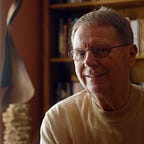Is life really meant to be enjoyed?
Many of our great thinkers say so. Aristotle, for example, said that happiness is the ultimate goal of human life and it is attainable for most of us. He defined happiness as a lasting state of contentment, purpose, realizing our potential, and modifying our behavior to be the best version of ourselves.
Aristotle dug deeper into his ideas about happiness and I agree with him: ‘When I say that pleasure is the goal of living, I do not mean the pleasures of libertines or the pleasures inherent in positive enjoyment, as supposed by certain persons who are ignorant of our doctrine or who are not in agreement with it, or who interpret it perversely. I mean, on the contrary, the pleasure that consists in freedom from bodily pain and mental anguish. The pleasant life is not the product of one drinking party after another, or of sexual intercourse with women and boys, or of the seafood and other delicacies afforded by a luxurious table. On the contrary, it is the result of sober thinking — namely investigation of the reasons for every act of choice…”
Omar Khayyam disagrees. He wrote, fifteen or so centuries after Aristotle, in The Rubaiyat these pithy words that surely ruined more lives than it saved, created more sad than glad over the long haul.
Drink wine; this is life eternal;
This is all that youth will give you;
It is the reason for wine, roses, and friends drinking together;
Be happy for this moment — it is all life is.
I am finishing my manuscript for a book about enjoying life titled More Glad than Sad, and other witty wisdom from a life worth examining. In it I posit:
The right to pursue happiness, as guaranteed by Thomas Jefferson in The Declaration of Independence more than two centuries ago as I write this, seems to me to be wasted words. We have always assumed the right to pursue happiness; it is in our natures, our DNA. We do not need Jefferson’s immortal words to give us permission, but it’s nice of him to do so.
Alas, with exceptions of which I am unaware, we do not know what we are pursuing. Happiness is akin to pornography: we know it when we see it, feel it, think it. It is a mystery akin to religion. Happiness is an industry with sellers and buyers.
We all know — or think we do — what has made, now makes, or will make us happy. I have known, and daresay that you have as well, people who are convinced that a few millions of dollars would make them happy, or a fancy car, a more attractive partner, an exotic vacation, a new set of golf clubs — material things that the advertisers foist on us. Yet we all know miserable people who have millions, drive expensive cars, socialize and sleep with arm candy, take long vacations to exotic resorts, and so on. We all know people who think that happiness is a full bottle of booze and a cigarette and are dying slowly because of it.
Happiness is akin to pornography: we know it when we see it, feel it, think it. It is a mystery akin to religion. Happiness is an industry with sellers and buyers.
In other words, the right to pursue happiness can be for the unfortunate few the right to pursue disillusionment, frustration, disappointment, and an early grave.
